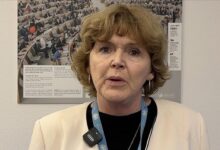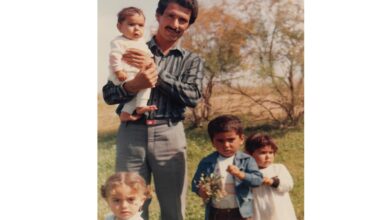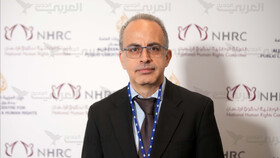Association for Defending Victims of Terrorism – The General Assembly adopted two resolutions and one decision, all without a vote, while also concluding its debate on the seventh review of the United Nations Global Counter-Terrorism Strategy.
Member States hard hit by terrorism and violent extremism were among the speakers who took the floor to conclude the Assembly’s debate of the United Nations Global Counter-Terrorism Strategy which began on 30 June and continued on 6 July.
PETER MOHAN MAITHRI PIERIS (Sri Lanka) said an increasing normalization of hate speech has benefited terrorist groups, who have exploited hardships and inequalities resulting from the COVID-19 pandemic and used disinformation and false narratives “to echo their twisted causes”.
MOHAMMAD YOUSUF ABDULLA MOHAMMAD BASTAKI (United Arab Emirates), Noting that Da’esh has more than $300 million in its coffers, he called for increased efforts to counter terrorist financing by addressing the link between organized crime and terrorism and such groups’ use of the deep web.
MOHAMMED HUSSEIN BAHR ALULOOM (Iraq), said, Although the security forces spare no effort to combat terrorism and violent extremism, Da’esh gangs and others have continued to attack the Iraqi people, undermine national security and spread ideas which run counter to the principles of Islam and other religions. The complete eradication of ISIL/Da’esh, and ensuring that terrorists are brought to justice and duly punished, can only strengthen international peace and security, he said.
UHIMWEN ROBERT IMOHE (Nigeria), said that his country is witnessing a growing nexus between terrorism, banditry and other forms of criminality. Growing affiliate relationships between terrorist groups in the Lake Chad Basin and Sahel with Da’esh and Al-Qaida is another worrisome trend with global implications.
NÉSTOR POPOLIZIO (Peru), stressed the need to prevent the abuse of social networks. He also stressed the need to tackling the link between terrorism and transnational organized crime, saying that “tackling one means tackling the other”.
JOÃO GENÉSIO DE ALMEIDA FILHO (Brazil) said despite international conventions and Security Council resolutions, and despite seven reviews of the Global Counter-Terrorism Strategy, Member States still do not agree on what exactly constitutes terrorism. Constructive ambiguity might have allowed the Assembly to achieve consensus on the Strategy over the years, but this lack of clarity must not become the norm.
TRINE SKARBOEVIK HEIMERBACK (Norway) stated that the entirety of the United Nations must play a central role in the international community’s collective response to terrorism. She stressed the need to: focus on prevention by addressing the root causes of violent extremism;
BASSAM SABBAGH (Syria) said that it is an undeniable truth that terrorism knows no borders. Fighting terrorism cannot be a pretext for interfering in the internal affairs of States, to launch aggression or to occupy parts of another country’s territory. He drew attention to Syria’s long and vast experience in combating terrorism and called for practical steps to dry up financing flows to such groups as Da’esh, the Al Nusra Front and their affiliates. .
PASCALE CHRISTINE BAERISWYL (Switzerland) said that in the context of international mobilization against the pandemic, States must remain united in combating terrorism. That requires cooperation between Member States, the United Nations, civil society and the private sector, she said, adding that joint efforts must be consistent with international law and the rule of law if they are to be effective and sustainable.
NASEER AHMED FAIQ (Afghanistan), noting that his country is on the front line of the fight against terrorism, as well as a victim of terrorism, said: “We cannot claim to be safe unless we vanquish this threat globally.” Member States must be united and that will happen when they are all on the same page. The international community must also tackle the illegal narcotics trade, as well as the trade in materials uses to manufacture improvised explosive devices and other ordnance. The rights of victims of terrorism must be recognized, protected and promoted, he said, emphasizing that “their experiences and stories matter”.
TOFIG MUSAYEV (Azerbaijan), cited “Terrorism is used to advance the policies of aggression, occupation and ethnic cleansing against sovereign States, often with involvement of foreign terrorist fighters,” he said, Among other things, he underscored that States are obliged to suppress the mobilization of foreign terrorist fighters and strengthen border security, and that no amnesty or early prisoner release should be granted for perpetrators of terrorist acts.
T.S. TIRUMURTI (India) recalled that, 15 years ago, Member States agreed that there can never be any justification for acts of terrorism, regardless of who, where, when or why they are committed. Calling on States not to squander the gains achieved so far, he warned against justifying terrorism in any way — whether on the grounds of religion, ideology, ethnicity or race — which would diminish the collective fight. “Let us not forget that before 9/11 happened, the world was divided into ‘your terrorists’ and ‘my terrorists’,” he said, noting that the attack in New York led to an acceptance of the fact that terrorism in one part of the globe can also impact other countries and regions. He said, warning against such divisions in the world’s collective understanding and calling for agreement on a universal definition of the term “terrorism”, which continues to hamper countries’ ability to eliminate it together.
MIRGUL MOLDOISAEVA (Kyrgyzstan) said that the fight against terrorism should be waged under the auspices of the United Nations and in compliance with international law, international humanitarian law and human rights. She went on to say that containing, suppressing and preventing terrorist attacks — and the prosecution of terrorism suspects — should remain a priority during and after the pandemic.
CARLOS EFRAIN SEGURA ARAGON (El Salvador) said that El Salvador remains gravely concerned by the links between some forms of transnational organized crime and terrorism, he said, reaffirming the need to strengthen cooperation at many levels to combat that scourge.
MOHAMMAD KURNIADI KOBA (Indonesia), welcomed the resolution’s recognition of new and emerging threats, including the misuse of new technology, and emphasized that common efforts to counter terrorism must include all stakeholders, including civil society, the media, religious leaders, women, youth, the private sector and victims of terrorism.
SYED MOHAMAD HASRIN AIDID (Malaysia), Warning against attributing terrorism to any particular religion, nationality, civilization or ethnic group, he stressed that Da’esh “is neither Islamic, nor a State” and called on all Member States and United Nations entities to mainstream the name “Da’esh” when referring to the group. he stressed, spotlighting Malaysia’s status as a multireligious, harmonious, pluralistic society and reiterating the importance of “winning hearts and minds” in the psychological war against terrorism.
DAVIT KNYAZYAN (Armenia) rejected attempts to associate any particular country, race, religion, culture or nationality with terrorism.





